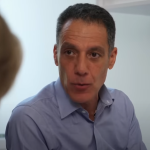From the Los Angeles Times
Web services speed ahead with ways to bolster customer security
By Paresh Dave
In late February, a thief or thieves cracked into Evernote's digital vault filled with log-ins, passwords and email addresses belonging to 50 million users. It was a shocking cyber attack considering the Redwood City, Calif., company offers online lockers for people to safely store their files.
With its reputation on the line, the company quickly developed a security feature that may become the standard procedure for accessing online accounts: demanding two digital keys to gain entrance....
Researchers are experimenting with futuristic electronics that are wearable or even digestible. And companies are working on making existing products harder to crack....
Although many people are willing to endure extra security to access computer systems for their jobs or to protect their banking or health insurance information, going through an extra layer to use social media or email is a hassle, said John Chuang, an information professor at UC Berkeley.
"If I'm an employee and I need it to get my work done, I'm going to do it," Chuang said. "Logging into LinkedIn, that's a different calculus."...
At Berkeley, Chuang's idea for the future is called Passthoughts. Users log into their accounts by connecting to a brain wave reader and thinking about a secret phrase that they have saved. Every thought generates a unique set of brain waves. The computer will recognize the thought each time. The price of these special readers has come down from thousands of dollars to $99, making the idea more plausible....







